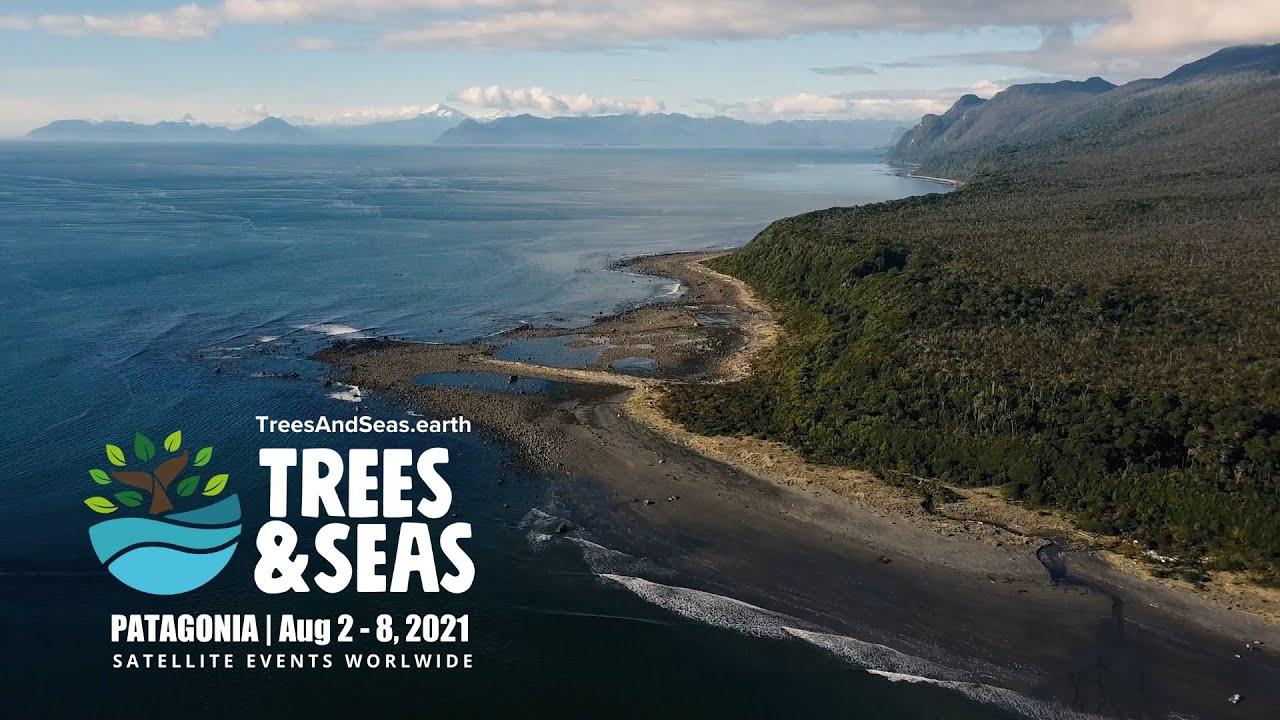
First-Ever Trees & Seas Event Emphasizes the Connection Between Forests and Oceans This Summer

Conservation efforts often focus on a particular animal or ecosystem, organizing to save the whales or the rainforests, for example. But, as the climate crisis and coronavirus pandemic have made all too clear, every creature and biome on this Earth is intimately connected.
That is why Plastic Oceans International and ÜÑÜ are organizing the first ever Trees & Seas event this August to emphasize the link between ocean and forest health.
“As our organization came to more closely embrace the concept of one shared experience – that we are all one planet, one environment and, in the end, one global community – it became clear to us that even our core issue of plastic pollution, as an ocean-based problem, was limited and incomplete,” Plastic Oceans Chief Operating Officer Tod Hardin told EcoWatch in an email.
To fill in its vision, the organization is hosting the Trees & Seas event from August 2 to 8. This week will combine action with education both in-person and with virtual events. While the hub of the event will be Chile’s Chiloé Island in Patagonia, there will also be activities in more than 20 other locations worldwide.
Planned highlights of the event include:
- More than 100 coastal and forest cleanups
- The planting of more than 50,000 trees and shrubs
- More than 50 youth workshops, panel discussions, film screenings and live art and music showings
The event is also sponsored by a variety of companies, governments and nonprofits, including One Tree Planted, Chile’s Ministry of Environment, Mexico City’s Secretary of the Environment, Avocado Green Mattress, NatraCare, Kiss the Ground, BioBag Chile and the MERI Foundation. EcoWatch is proud to serve as the Global Media Partner.
The week’s hub of Chiloé Island is an example of the importance of preserving both trees and seas. Cesar Gallardo
Trees & Seas
But how exactly are oceans and forests connected?
“In general, what we do on land, inevitably impacts water, and vice versa,” Hardin explained to EcoWatch. “We know that healthy forests reduce ocean acidification, just as we know that agricultural runoff is having a devastating impact on our waters, including our oceans and even our largest source of freshwater, the Great Lakes. We know that the litter that somebody discards in Florida, or Spain for that matter, can end up in the ocean and make its way to fragile turtle nesting habitat thousands of miles away on Mexico’s Yucatan Peninsula, just as we know that forests can act as a bit of a safeguard or filter, capturing land-based plastics, where it can be collected before making it to a water source … or even those fragile nesting areas.”
This chance to educate people about the interrelatedness of woodland and marine environments was one major reason that One Tree Planted chose to be involved.
“Forests impact oceans by reducing sediment runoff and helping to reduce carbon absorption in the ocean that leads to acidification,” One Tree Planted Project Manager Alaine Ball told EcoWatch in an email. “The mission of One Tree Planted is to get trees in the ground, but the positive impact of reforestation goes far beyond individual trees. Many people may not be aware of the relationship between forests, water, air quality, and the carbon cycle, so we love to support projects that highlight the water, biodiversity, and other benefits of reforestation.”
Local & Global
The week’s hub of Chiloé Island is an example of the importance of preserving both trees and seas. The island is heavily impacted by the fish farming industry, which pollutes its shores with plastic, Hardin explained. It is also heavily deforested, having lost more than 310,000 acres of trees in the last two decades.
To help combat these issues, One Tree Planted will sponsor the planting of 20,000 new trees on the island alone.
“The Trees & Seas event in Chiloé will empower people to have a direct impact on their local environment and raise awareness around the Island’s unique ecology and culture,” Ball said.
The importance of local connection and community is a big part of how the event came to be, as Hardin explained. It arose as part of Plastic Oceans’ Blue Communities initiative, which looks to empower local organizations to improve their ecosystems, in the belief that this will ultimately create global change. In looking for an idea to unite its local partners, Plastic Oceans took inspiration from Chiloé Island-based ÜÑÜ, which had hosted a similar event locally in 2018 and 2019.
The Trees & Seas event was originally slated to take place in 2020, but was called off due to the uncertainties surrounding the outbreak of the pandemic. This year, the organization feels prepared to offer a mix between virtual and in-person events that follow safety guidelines.
“Accessibility is really important to us, as is creating a true sense of community and involvement with the festival,” Hardin said. “It’s definitely challenging to do that in a pandemic world, but if we can pull it off in any way, it only speaks to how great things could be next year when we hopefully can truly expand on the in-person experience.”
- Ocean Plastic Pollution Flows From More Rivers Than Previously ...
- EcoWatch Dives Into Ocean Conservation With Fabien Cousteau ...
- 11 Surprising Facts About Trees - EcoWatch
- 'Ghost Forests' Are an Eerie Sign of Sea-Level Rise - EcoWatch
- Trees & Seas Event Adds New Sponsor and Location as Launch Approaches
- First-Ever Trees & Seas Festival Launches Today

 233k
233k  41k
41k  Subscribe
Subscribe 

